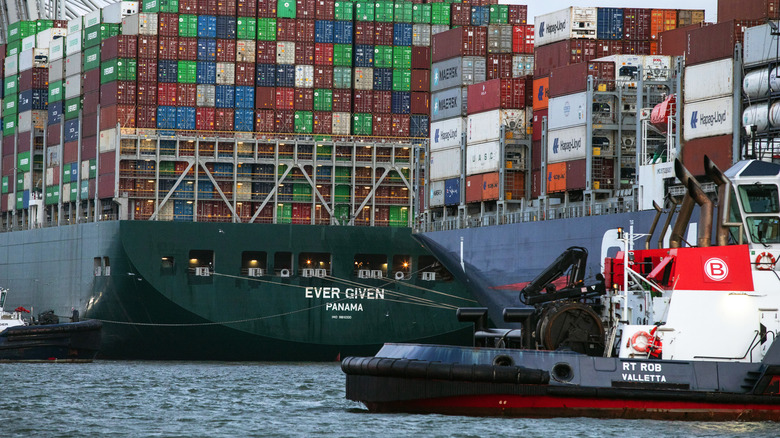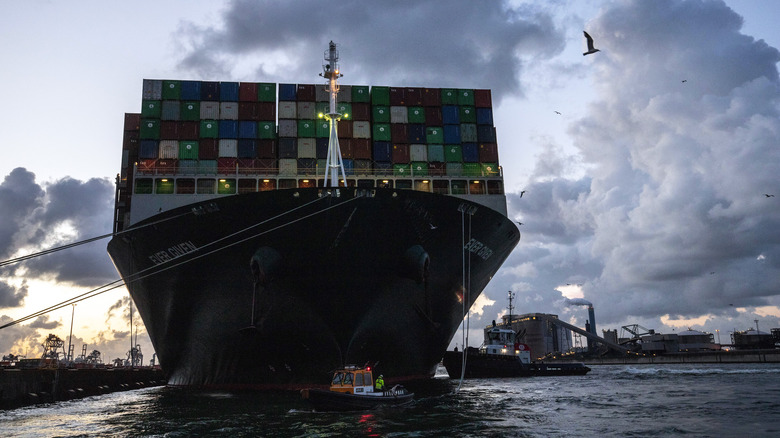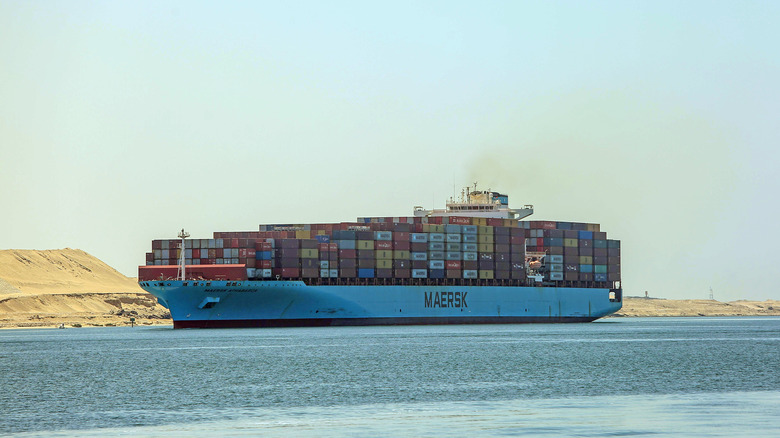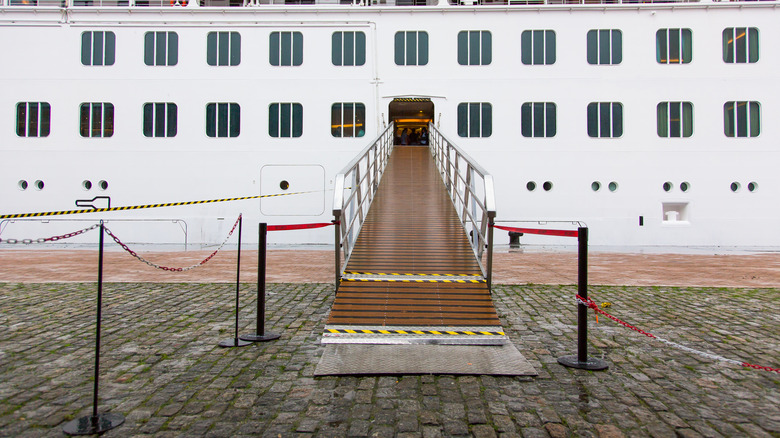How A Man Got Stranded On An Abandoned Ship For 4 Years
Humans have been navigating the seas for thousands of years, and untold numbers of them have wound up stranded for one reason or another. In some cases, such as that of the mutiny on the ship HMS Bounty, some of the ship's crew were forced into lifeboats and left to fend for themselves, as History reported. Other vessels have suffered mechanical or weather-related issues that left them inoperable, and the crew aboard was left with no choice but to hope for rescue before rations ran out.
You would think that in the 2000s, with tight international conventions governing shipping, as well as modern communication methods and up-to-date sailing equipment, the odds of a sailor being left aboard a ship for a long time would be minimal. As it turns out, however, the problem of shipping companies abandoning their sailors is a major issue in 2021, and one man found that out the hard way. The Syrian sailor found himself caught between government bureaucracy and employers who were unable (or unwilling) to help. And he remained that way for four years.
Mohammed Aisha's ship had expired paperwork
Back in May 2017, according to BBC News, Syrian sailor Mohammed Aisha joined the crew of the MV Aman. A few months later, in July, the vessel sailed into the Egyptian port of Adabiya. However, the ship had expired paperwork and certain mechanical issues, and Egyptian authorities refused to allow the vessel to port until those matters were dealt with. Unfortunately for the crew, the Lebanese company that had contracted it were unable to pay for fuel and repairs, and the ship's Bahraini owners were themselves experiencing financial hardship, too.
Eventually, an Egyptian court deemed Aisha, the highest-ranking officer on the ship, its "guardian," which meant that he had to stay aboard while the rest of the crew was allowed to leave. Aisha would later say, via The Wall Street Journal, that the ship's captain talked him into signing a document giving him (Aisha) authority over the vessel. "I had no idea it was the biggest mistake of my life," he said.
His ordeal would wind up taking the next four years to resolve.
All alone with no power or sanitation
By 2018, the ship's rations were running out, and the vessel's owners would sometimes drop off a shipment of food. However, those shipments became smaller and less frequent, and Aisha said that, some days, he had only chunks of bread to eat, according to The Wall Street Journal.
His vessel, now without fuel — and, as a result, power or sanitation — was as silent as the grave. During the heat of the day, Aisha would escape to the bowels of the ship, in darkness and dead silence. When it was comfortable enough to do so, he went to the deck and watched sailing ships pass by. Sometimes, his brother, also a sailor, would sail past him, but never close enough that they could wave to each other.
Aisha passed the time by downloading and reading books, talking to his relatives back home, and trying valiantly to come up with a way to get off the ship. More than once he tried to go ashore in Egypt, only to be detained, interrogated, and brought right back to his ship. He also tried to convince authorities the inoperable ship was dangerous and uninhabitable, but to no avail. After a storm knocked it loose from his moorings, according to ITF Seafarers, he was close enough to shore that he could swim to Egypt, score food and water, and recharge his phone, but he always had to swim back to the home that had become his prison.
A seafarers' union finally came to Aisha's rescue
In April 2021, according to ITF Seafarers, Aisha's ordeal finally came to an end. The international trade union, part of whose scope is advocating for abandoned sailors, convinced an Egyptian court that one of its own representatives would take Aisha's place as guardian of the vessel, and the sailor was finally allowed to return to Syria.
Though he's glad to be home, according to BBC News, the damage has been done. The sailor was trapped aboard his ship while his mother died, leaving the son unable to attend her funeral. His physical and mental health have suffered.
Aisha's case, while extreme, is far from unique, according to a companion BBC News report. Far too often, shipping companies run out of money and leave the crew, often consisting of men from poor and underdeveloped countries, penniless, starving, and thousands of miles from home. Many have had to rely on charities and the kindness of strangers to even eat. What's more, they're reluctant to leave the ship because they fear that, if they do, they'll be considered to have abandoned their posts and would forfeit their wages.



